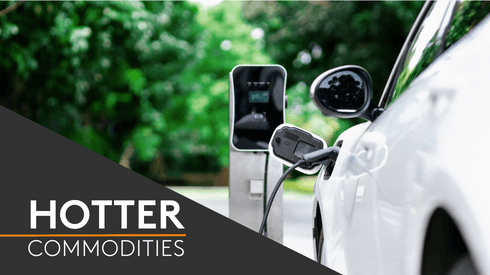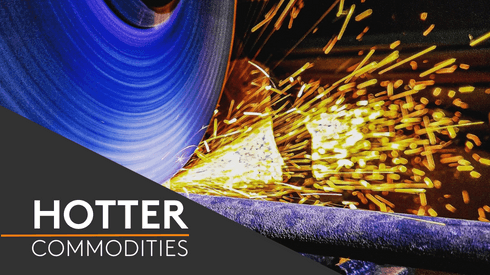On Thursday March 16, the European Commission proposed the long-awaited CRMA with the intention to equip the EU with tools and measures to reduce the bloc’s dependency on imported critical raw materials. It will achieve this by diversifying import sources and securing a sustainable domestic supply of critical raw materials.
The Act sets targets for the production, refining and recycling of key raw materials while leveraging the strength and opportunities of the single market. It also aims to fortify the EU’s external partnerships through diversification and improved reliability, to enhance the resilience of its critical raw materials supply chains.
Circularity and sustainability remain key elements of those supply chains, the proposed Act says.
Furthermore, the Act is intended to reduce the administrative burdens related to new energy transition projects and to speed up approval processes for essential raw materials projects carried out within the EU.
This seems to highlight a sense of urgency among EU Commissioners about establishing a reliable domestic supply chain, compared with the already well-established Chinese hub. In the US, there is a similar rush to establish its own hub. This is supported by the Inflation Reduction Act (IRA), enacted last year, which has already attracted a number of international participants in the battery ecosystem.
The European Commissioners announced that they would set a number of voluntary targets for the supply of essential raw materials to be reached by 2030. These would include:
- At least 10% of the EU’s annual consumption for extraction
- At least 40% of the EU’s annual consumption for processing
- At least 15% of the EU’s annual consumption for recycling
- No more than 65% of the EU’s annual consumption of each strategic raw material at any relevant stage of processing should come from a single third country.
As a next step, the proposed regulation will be discussed by the European Parliament and the Council of the EU.
Lithium, a key element of the batteries used in electric vehicles (EVs) and electronic portable devices, is on the list of critical raw materials updated by the EU, alongside other key battery raw materials.
“The EU does not have an abundance of critical minerals,” Will Adams, Fastmarkets’ head of battery raw materials research, said. “Where it has them, it needs to develop them with a sense of urgency. Parts of the EU’s CRMA do address some of these issues, limiting planning to two years for mining projects and one year for processing projects.
“Because the EU will have to import most of its raw materials, speeding up the processing application procedure will help the EU to build its supply chain,” he added.
“We should not fail to recognize that existing trade relationships will be the cornerstone of resilient supply,” Rock Tech Lithium communication officer André Mandel said of the CRMA, “particularly between Canada, Australia and the EU.
“And it must be so even before new mines are developed in Europe or on other continents,” he added. “A supportive investment environment for companies from these countries must be an important building block. The US is showing us how this works.”
Rock Tech Lithium has plans to build five lithium converter facilities, one in North America and four in Europe because both regions were taking decisive steps to localize their lithium-ion battery supply chains.
The raw material for these converters will be sourced from the company’s own greenfield spodumene project in Canada and from other producers, while it is also looking into recycled materials.
“Speedier administrative procedures are critical to the continuing development of gigafactories as well as recycling infrastructure, which is key to Europe’s sustainability position,” Giorgio Corbetta, EU affairs director at the Association of European Automotive and Industrial Battery Manufacturers, said.
“We also look positively at capital investment support along the different steps of the value chain,” he added, “again respecting sensitivities around the resilience of the EU single market.”
“There is a risk that the EU’s countermeasures open state aid competition between the member states. It is important that the US and the EU will agree on the equalization of raw materials and battery materials produced in the EU with those produced in the US, and that trade policy confrontation can be avoided,” Matti Hietanen, chief executive officer of Finnish Minerals Group, told Fastmarkets.
Want to read more on policy?
Find out more about policy changes and their impact on the market. Read our recent insights report into policy changes in the US and EU and their effect on the already volatile battery materials and electric vehicle market.
- Discover how US and EU policies may present obstacles in the journey to a more sustainable future
- Find out about the impact these policies have on the future of key battery materials
- Read about how these policies are influencing the emergence of regional supply chains
- Use our interactive visualizations to find out more information on the policies, timelines and what this means for your business





